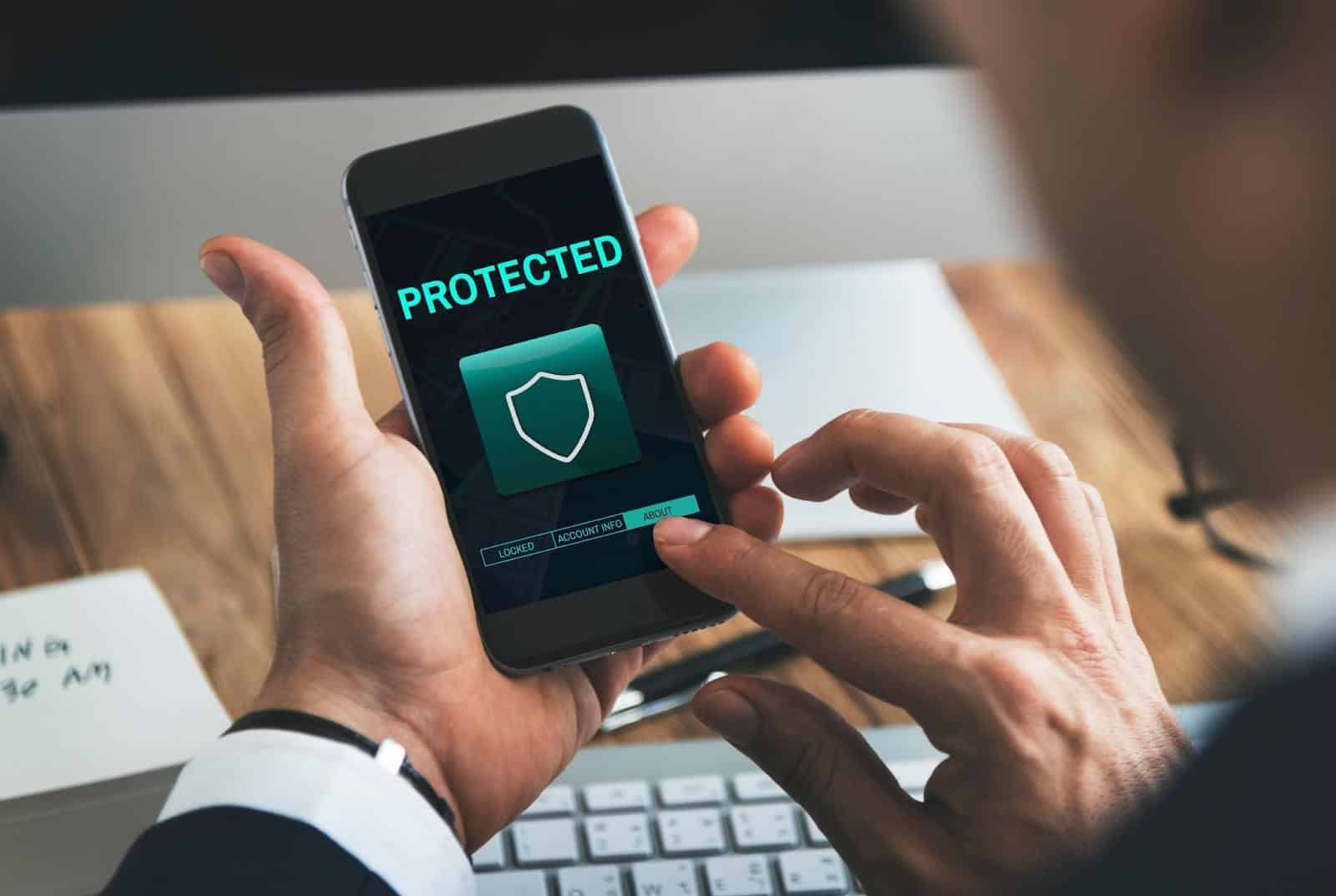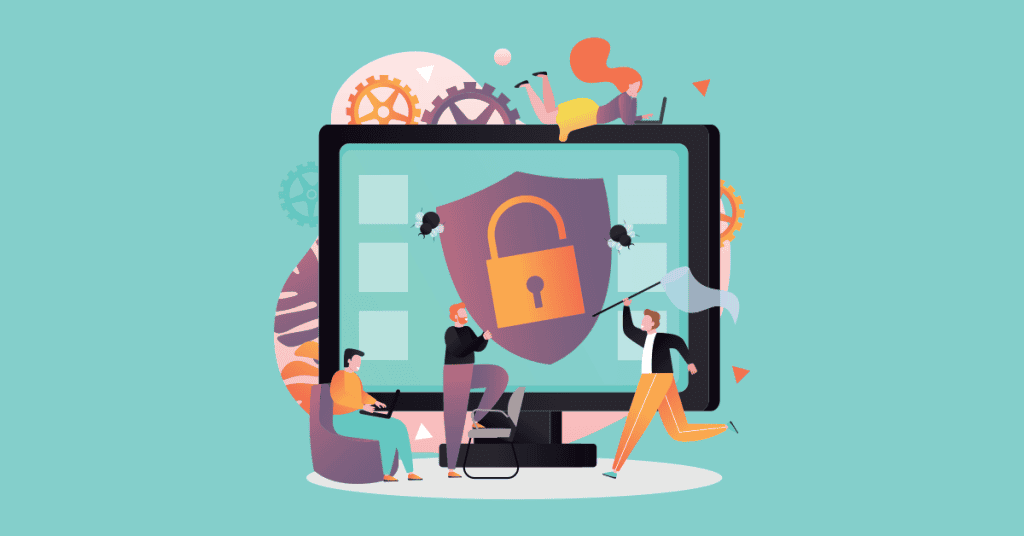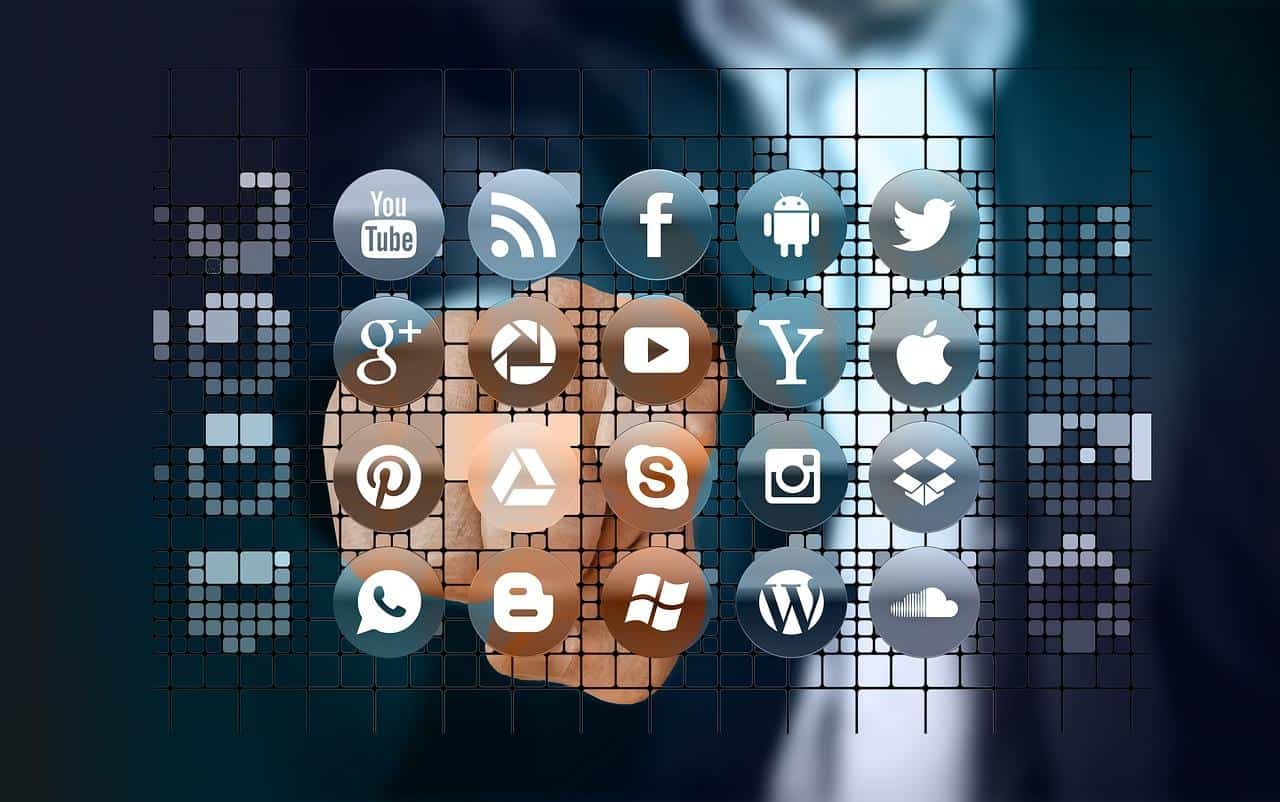Social Media has changed the way we do business. Even the most buttoned-up corporations now use informal means to advertise and market their products and services. Why wouldn’t they?
The numbers for social media platforms such as Facebook, Instagram, TikTok, and YouTube are quite significant. As of 2024, at least 4.9 billion people are active on social media. That is 60% of the global population that businesses can target with their marketing campaigns, reaching a wider audience.
This has made social media marketing an indispensable tool for businesses where they engage with their audience, build brand awareness, and drive sales. However, this increased use of social platforms exposes businesses and individuals to cybersecurity risks. From data breaches that expose customer information to impersonation scams, the risks are very real and growing. So, what are your options?
https://pixabay.com/photos/app-networks-internet-man-touch-3306766/
Techopedia’s tech expert Krishi Chowdhary recommends using the best antivirus software to protect your system against ransomware, spyware, phishing attacks, and malware. He adds that different antivirus software programs may perform differently in terms of how well they protect your system when you are online, their scanning speed, and device compatibility.
Cyber incidents increased by 18% in the past year alone. Securing your social media accounts using antivirus software, VPNs, and secure internet connections is only a small component of the bigger picture in protecting your brand, customer data, and reputation. One way for marketers to mitigate cybersecurity risks is through link verification. Featuring a reliable tool in your security arsenal can significantly vary your security layers. To ensure shared URLs don’t pose risks, always check links for safety. This helps avoid malicious content impacting your brand’s reputation.
The Dark Side of Social Media Marketing
While social media offers incredible opportunities for marketers, there is also a sinister side that’s impossible to ignore. Some eye-opening statistics and studies reveal the true extent of cybersecurity threats in social media, influence how we do business. For instance, social media accounts are hacked every 39 seconds. That’s right; multiple accounts have likely been compromised in the time it took to read this paragraph.
It’s not just individuals at risk, approximately 56% of social media hacking attempts target small businesses. This threat is far from theoretical, at least 37% of businesses reported a social media cyber incident in the past year.
The scale of these attacks is sophisticated. On average, 1.4 billion social media accounts are hacked every month. Facebook, for instance, sees at least 300,000 accounts hacked daily. The largest cyber attack occurred in April 2021, where a single breach exposed data from 530 million Facebook users.
You might think it’s a simple hack, what could threat actors possibly gain? Well, social media hacking costs businesses $4.3 billion each year. In 2021, 950,000 Americans lost more than $770 million to social media scams. While the financial impact of hacking blows the mind, perhaps the most concerning is how unprepared many businesses are.
Only 33% of businesses have an incident response plan for social media attacks. With 88% of businesses believing they are vulnerable to cyber attacks through social media, it’s apparent that awareness isn’t translating into action. These statistics are not a scary story to tell around the campfire, they paint a sobering picture of the risks hiding behind every social media post, follow, and like.
Emerging Threats in Social Media Marketing
Just when you think you’ve got a handle on social media security, emerging threats throw a curveball. What are some of the newer threats that are keeping marketers up at night?
Data Breaches
Data breaches are like uninvited guests at a party, they show up unexpectedly, cause chaos, and leave you dealing with the aftermath. Large corporations are no longer the only target, your small marketing firm can find itself in the crosshairs of cyber attackers looking to make a quick buck off your customer data.
Take the recent Ticketmaster breach for example, in May 2024, hackers breached 560 million records from the ticketing company. We are talking names, addresses, phone numbers, and potentially sensitive payment details. The fallout from this data breach is Ticketmaster and Live Nation facing four class action lawsuits. The stolen data puts customers at risk of identity theft and financial fraud.
Deepfakes and Voice Cloning
Welcome to the era where your eyes can deceive you! Deepfakes are realistic fake videos and images that are becoming so advanced by the day. Imagine waking up to find your CEO saying something about a marketing campaign that could ruin a client’s reputation. Deepfakes not only spread misinformation but pose a significant threat to brand reputation and consumer trust.
Deepfakes are slick, but voice cloning is a growing threat. The prevalence of voice data available online is contributing to the risk of voice cloning fraud. At least 77% of people lost money to voice cloning scams. According to Google Trends, between July 2023 to 2024, the search for “free voice cloning software” increased by 120%.
These statistics highlight the need for increased awareness and protective measures against an unsettling growing threat.

Free Photo | Html and css collage concept with hacker
Account Hijacking
Account hijacking is the equivalent of someone stealing your car. One minute you are cruising along, posting content and engaging your audience. The next you’re locked out of your own accounts while someone else takes the wheel. For marketing companies, account hijacking can lead to unauthorized access to sensitive client data, fraudulent posts, and a loss of control over brand messaging. To prevent session hijacking and mitigate these risks, it’s crucial to implement robust security measures. The impact can be severe, with the average cost of a data breach reaching $4.88 million when phishing is the initial attack vector.
Phishing and Social Engineering
While phishing and social engineering aren’t new threats, they are evolving faster and becoming more sophisticated. Phishing attacks are especially becoming more advanced, often masquerading as legitimate communications from platforms you trust. Social engineering, on the other hand, can be compared to mind games, manipulating people into giving up their sensitive information.
The reality is that marketing companies are particularly vulnerable to these attacks due to their extensive use of social media and email communications. Phishing leads to data breaches, exposing campaign strategies and client information. The impact is far more than financial and productive losses, it’s potential legal consequences that could have been avoided.
Cybersecurity Measures for Social Media Marketing
Your marketing company’s reputation is just one click away from disaster. Sounds dramatic, right? With the right precautions, it’s also one step closer to resilience. To combat these threats, prioritizing cybersecurity measures prevents your business from becoming a target.
Install and Regularly Update Antivirus Software
Using an antivirus helps detect, block, and even remove malicious cyber threats. These threats can compromise your devices, potentially affecting your social media accounts. Antivirus software should be your first line of defense, actively scanning and blocking phishing emails, harmful downloads, or compromised websites. So, you should have this software installed on your devices and regularly update it.
Antivirus software is also priced differently depending on its performance and the software provider. Because of these reasons, you need to choose the most suitable antivirus software for your system depending on your needs and its affordability. Of course, there are free antivirus software options on the market, but are not recommended for marketing companies due to their limited abilities.
A crucial feature for marketing companies that antivirus software programs have is the browser extensions. This feature sends you a warning before you can access an unsafe website. This is especially important when managing your social media marketing activities.
Think of antivirus software as your digital bodyguard, it’s always on the lookout for trouble. Most of the antivirus software should have real-time scanning, detecting and neutralizing threats before they can cause any real damage. Some websites can be flagged as unsafe, and yet you know they are safe, so you have the option to ignore the warning, but it is recommended to only do so if you are familiar with the website. Beyond antivirus, consider a Cloud Workload Protection Platform (CWPP) solution. CWPP security focuses on protecting workloads (applications and data) running in cloud environments, which is increasingly relevant as social media marketing often involves cloud-based tools and services. A CWPP can help identify vulnerabilities, detect malicious activity, and enforce security policies across your cloud infrastructure, adding another layer of defense against sophisticated attacks.
Use Strong and Unique Passwords
Cyberthreats are evolving faster than fashion trends. Make sure that all your social media accounts have strong and unique passwords. Unfortunately in 2024, we are still seeing passwords using the number sequence 1234 or personal information such as birth date, phone number, and anniversary.
Instead, create passwords that are a combination of numerical, alphabetical, and special characters. Now, I can already hear you groaning about how remembering your personal passwords on top of your marketing company’s social media account passwords is impossible.
Use a reputable password manager across multiple accounts. It can help you generate and store secure passwords, saving you from expanding your brain’s capacity to 210% but also ensuring your social media accounts are safe and secure.

Protected Security Policy Safety Concept Free Image and Photograph 64759864.
Enable Two-Factor Authentication (2FA)
Using 2FA on your social media accounts boosts a user’s security as it requires a second verification step beyond your password before granting you access to your accounts. The second verification could be in the form of a code sent to your mobile device or a biometric scan.
Most major social platforms, such as Instagram, Facebook, and X, formerly known as Twitter, provide users with 2FA options. Even if a hacker manages to obtain your passwords, they still need the second verification step to access the account. While no security measure is foolproof, 2FA is a thorn in any hacker’s side, preventing 80% to 90% of cyber attacks.
Limit Account Access According to Roles and Responsibilities
You wouldn’t hand out copies of your house key to every neighbor on the block, right? Well, the same principle applies to your company’s social media accounts. Access to social media marketing accounts should be limited to trusted personnel only.
You can give access to individuals depending on their roles and responsibilities. The trick is to match access with roles and responsibilities. By limiting admin privileges, the circle of trust is kept tight, providing access by role and responsibility.
Monitor Third-Party Apps and Tools
It is common practice for marketers to use third-party applications to schedule posts or analyze data, but it is important to check the credibility of the apps first. Reading app reviews and verifying app credentials can help in this regard. You should monitor the apps regularly and revoke access when you stop using them.
Use Verified Accounts
For marketing purposes, it is important to ensure that you use verified accounts when you are engaging with your audience on social media. This establishes authenticity and also reduces the likelihood of your followers falling victim to imposters. If you use unverified social media accounts, your followers or clients may end up engaging fake accounts pretending to represent your brand.
Each social media platform uses a different way to verify accounts. Most platforms allow users to apply for their accounts to be verified by providing supporting information like IDs for individuals and official business documentation for entities.
Be Extra Careful with Polls, Contests, and Giveaways
If you are to add competitions, polls, or giveaways to your social media content as part of your marketing strategies or as a way to engage your followers or potential clients, make sure that you use secure forms. These help prevent cybercriminals from exploiting your activities to collect sensitive information.
Train Employees on Cybersecurity Best Practices
One of the leading causes of security breaches is human error, so you should educate your employees on how to identify phishing scams and other cybersecurity threats. Providing access to resources like online cyber security masters programs can deepen their understanding of these threats and enhance their ability to mitigate risks. Let them know why it is important to avoid clicking on links they are not sure of.
Stay Updated on the Social Media Platform’s Security Features
Because cybersecurity is a real concern, social media platforms are always updating their security settings. You should ensure that you stay informed about any updates or new features and enable them to keep your accounts secure. It is also important to regularly review and update your account settings.
Monitor your Account for Suspicious Activities
Be on the lookout for unusual account activity, which may include unauthorized logins, unfamiliar posts, or a sudden and unexpected increase in followers. You can link your social media account to your mobile so that you can receive notifications whenever there is a login attempt. Constant account monitoring can help you notice and rectify any questionable activities before any harm is done.
Use Secure Wi-Fi Connections
Accessing your social media accounts over public Wi-Fi networks is a security risk you should try and avoid at all costs. If you have no choice but to use public Wi-Fi, at least connect via a virtual private network (VPN) since it protects you from threats such as man-in-the-middle attacks and rogue Wi-Fi hotspots. VPNs use advanced data encryption protocols, which make the data you send or receive unreadable to anyone who might try and intercept it.
Conclusion
As long as you use the internet, be it for personal or business-related purposes, cybersecurity should be one of your most critical concerns. Practicing these tips will help you keep your social media accounts safe and secure while achieving your marketing goals. Remember that if your accounts get compromised, it will affect you, your clients, and your business’s reputation as well.



